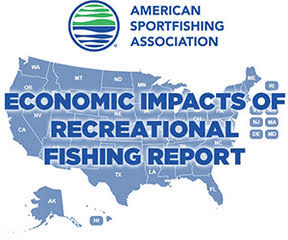Senate Holds First Hearings of 2013 on Gun Rights
On January 30, the U.S. Senate Judiciary committee held a hearing entitled, “What Should America Do About Gun Violence?” It should have been called, “How Do We Attack Second Amendment Rights?” The hearing (which can be viewed here) consisted of a single panel that included NRA Executive Vice President Wayne LaPierre, Second Amendment scholar David Kopel, attorney Gayle Trotter, Baltimore County, Md. police chief James Johnson, and Mark Kelly, the husband of former Congresswoman Gabrielle Giffords. (Rep. Giffords made a brief opening statement to the committee before the other witnesses took their seats.)
Anti-gun politicians such as Dianne Feinstein (D-Calif.), Dick Durbin (D-Ill.), and Chuck Schumer (D-N.Y.) all made the same emotion-laden arguments they have made for decades on why government should infringe the Second Amendment rights of the American people. As always, they failed to provide any rational evidence that the so-called solutions they are proposing–a massive new gun and magazine ban and banning the private transfers of firearms–would reduce ordinary street crime, let alone stop the kind of tragedies that have recently shocked our nation.
The NRA’s Wayne LaPierre stood firm in the face of repeated calls for more gun laws. In his testimony, he made clear that the NRA would not go along with any new restrictions of the rights of law-abiding Americans. “Law-abiding gun owners will not accept blame for the acts of violent or deranged criminals,” he said, “nor do we believe that government should dictate what we can lawfully own and use to protect our families.” In particular, LaPierre made the point that the new restrictions being proposed would not affect criminals or madmen.
While the law-abiding would submit to the laws, criminals simply would not. In response to a question, he pointed out that “even if you turn up someone on an instant check that’s a mentally ill person, or a felon, as long as you let them go, you’re not keeping them from getting a gun.” LaPierre emphasized that this applied particularly to the issue of regulation of private transfers, repeatedly telling the panel that criminals already obtain their firearms in illegal transactions and would continue to do so.
“My problem with background checks is, you’re never going to get criminals to go through universal background checks.” He went on “So, we’re going to make all those law-abiding people go through the system, and then we aren’t going to prosecute any of the bad guys if they do catch one.” On this point, Sen. Durbin tried to argue that a “universal” background check requirement would somehow convince criminals to simply give up on acquiring firearms. The truth is, Sen. Durbin is not nearly naïve enough to believe his own claims. He knows that these restrictions are not targeted at criminals, but at law-abiding gun owners.
Gun owners were also well represented by Prof. Kopel, who gave authoritative testimony on the ineffectiveness of gun laws and the real need to protect our right to self-defense. He also spoke to the real-world application of a ban on private transfers. He applauded the concept of making voluntary background checks available–as they already are to any gun seller and buyer who choose to complete a transaction through a licensed dealer–then went on to point out that “mandating universal checks can only be enforceable if there is universal gun registration, and we know that universal gun registration, in every country in the world where it’s existed, has been a serious peril to gun ownership.”
That last point was also made by Gayle Trotter, who offered an impassioned argument that women need freedom of choice in firearms even more than men do, in order to protect themselves and their children from criminal attack.
When Sen. Sheldon Whitehouse (D-R.I.), challenged her, Trotter stood firm. “I think that if she was using a 100 weapon [sic],” Whitehouse claimed, “She would clearly have an adequate ability to protect her family without the need for a 100?round piece.”
“How can you say that?” Trotter responded. “You are not a young mother who has a young child with her. And I am passionate about this position. Because you cannot understand. You are not a woman stuck in her house having to defend her children, not able to leave her child, not able to seek safety, on the phone with 911. And she cannot get the police there fast enough to protect her child…”
The pro-Second Amendment members of the panel, including Sens. Chuck Grassley (R-Iowa), Orrin Hatch (R-Utah), Jeff Sessions (R-Ala.), Lindsey Graham (R-S.C.), John Cornyn (R-Tex.), Mike Lee (R-Utah) Ted Cruz (R-Tex.) and Jeff Flake (R-Ariz.), all made strong statements in support of gun owners’ rights. In his opening statement, Sen. Grassley took on the many anti-gun senators who claim no one needs magazines that hold more than 10 rounds for hunting: “We hear that no one needs to carry larger magazines than those that hunters use to shoot deer, but an attacking criminal, unlike a deer, shoots back.” Sen. Cruz made it clear that he would not support a semi-auto ban in part because it was based on misinformation that has been fed to the American people for many years. “I was having a conversation recently with a loved one in my family who asked a very reasonable question,” he said. “She said, ‘Why do regular people need machine guns?’ And, you know, one of the things that happens in this debate is the phrase ‘assault weapons ban’ gets a lot of people really concerned, and they assume, much like the phrase ‘military-style weapons,’ that we’re talking about ordinary citizens walking around with M16s and Uzis that are fully automatic. Fully automatic machine guns are already functionally illegal. Ordinary citizens cannot own them, absent very, very heavy regulation. This entire discussion does not concern machine guns, and yet I would venture to say, a large percentage of Americans do not understand that.” He went on to show that the criteria used to identify an “assault weapon” is arbitrary. Using a picture of a semi-automatic Remington hunting rifle and a plastic pistol grip to make his point, Sen. Cruz pointed out that the rifle–specifically exempted from Sen. Feinstein’s legislation–could easily be modified into a banned “assault weapon” without any change in how it functions. One of the more eloquent points made on behalf of gun owner’s rights came from Sen. Graham, who addressed the issue of magazine capacity by describing a recent case in which a Georgia woman used a revolver to defend herself and her family against a home invader: “My basic premise is that one bullet in the hand of a mentally unstable person or a convicted felon is one too many. Six bullets in the hands of a mother protecting her twin 9?year?olds may not be enough.” The hearing lasted almost four hours, but all gun owners should take the time to watch. There is no better way to understand the weakness of the arguments of anti-gun politicians than to see them in action. This is just the first of many efforts this year in which congressional anti-gun advocates will try to build a case to take away our rights. NRA will continue to stand firm in opposition to these new laws. NRA members should stand up now and let their elected officials know they will not sit by as they are blamed for the mayhem caused by criminals and lunatics. Please contact your elected officials now, and respectfully urge them to protect our constitutional right to keep and bear arms. To identify and contact your legislators in Washington, D.C., you can use the “Write Your Reps” feature at www.NRAILA.org, or you can reach your member of Congress by phone at 202-224-3121.
| Share |







